An Unstoppable Duo with a Vision for Cancer Care at Georgetown Lombardi
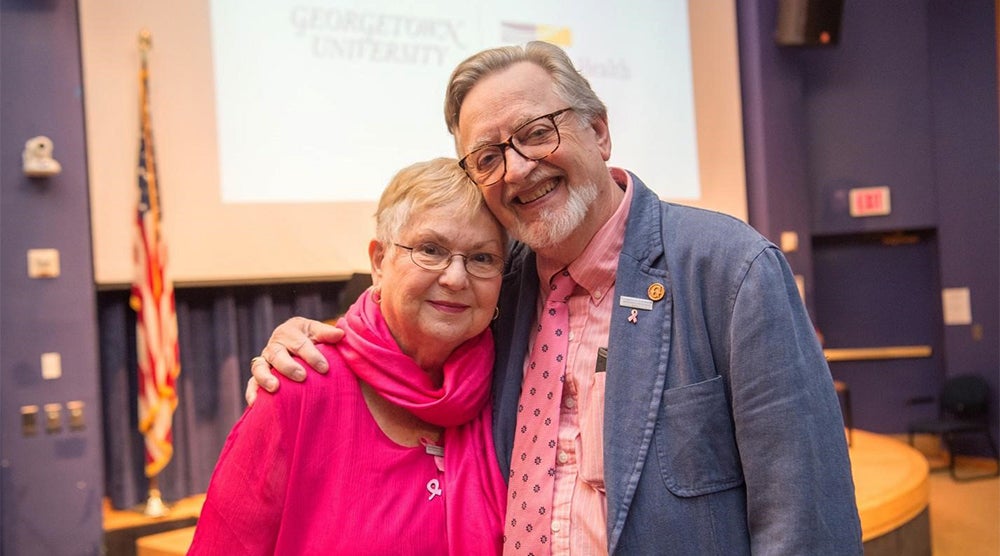
Posted in Lombardi Stories | Tagged cancer, patient navigation
(October 18, 2019) — To recognize breast cancer awareness month this October, one visionary couple hosted a panel discussion to discuss the next generation of cancer treatments and used the opportunity to announce their plans to support patient services at Georgetown Lombardi.
Clifford and Patricia Chieffo have spent the greater part of their careers as educators: Clifford Chieffo is an artist, author, professor and founder of the Department of Art, Music and Theater at Georgetown University; and Patricia Chieffo is the founding director of intern programs at the Smithsonian American Art Museum. Together they also served as curators of Georgetown University’s Art and Antiques Collection.
The Chieffo team have been married for 60 years and both are cancer survivors.
She has stage 4 metastatic breast cancer and has been a Georgetown Lombardi patient for 20 years. He was diagnosed with a rare form of pancreatic cancer in 2018.
In kicking off the panel discussion, the Chieffos explained to attendees that they are organizing a new initiative called Peer Cancer Warriors. Peer Cancer Warriors aims to offer a program of support services at Georgetown Lombardi Comprehensive Cancer Center through a patient navigator to coordinate and organize support programs like mindfulness, family therapy, yoga, legal medical directives, art therapy and other services that help patients on their treatment journey. “This will be part of a new maximizing synergy among cancer learning and research within and under the cura personalis banner of Georgetown University,” said Clifford Chieffo.
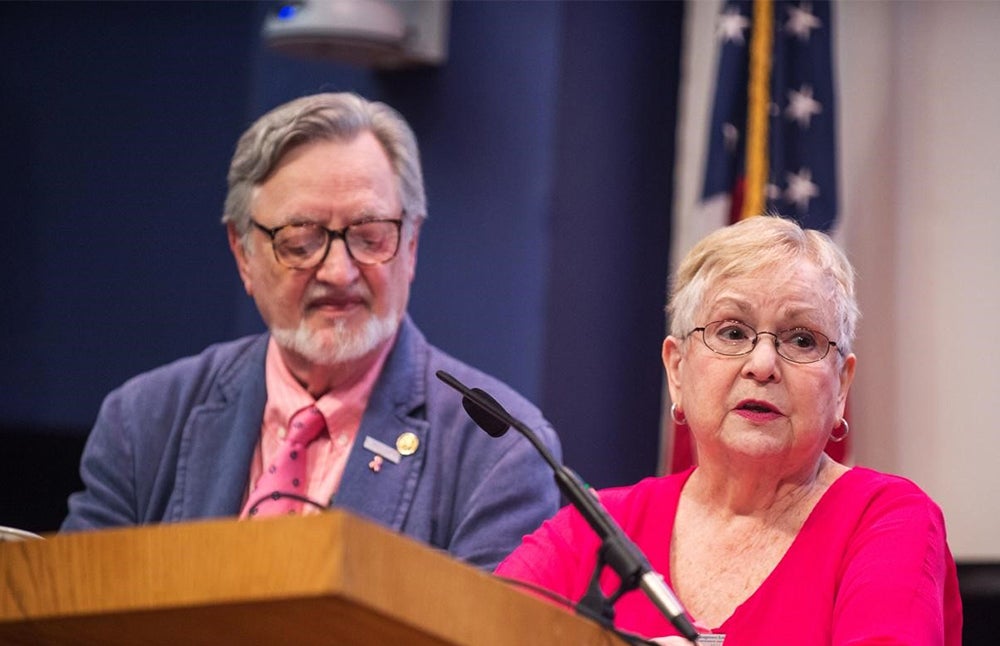
“We are hoping to establish an endowment for a Lombardi patient navigator to facilitate Georgetown’s already excellent service resources. Our mission as paired warriors is to provide our counterparts with information of services, treatments available now and on the horizon, which will enhance our warrior lives and the lives of our caregivers, family, faculty, staff, students and friends.”
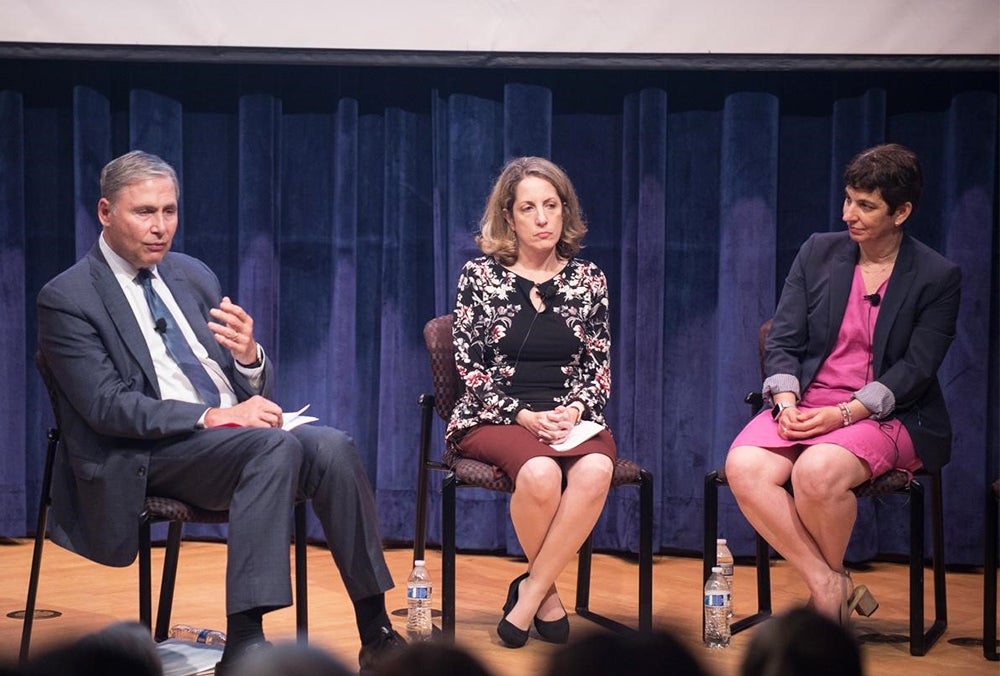
The Chieffos invited the evening’s panelists to the stage. Louis M. Weiner, MD, director of Georgetown Lombardi Comprehensive Cancer Center, Beth N. Peshkin, MS, LCGC, director of genetic counseling at Georgetown Lombardi, and Claudine J. Isaacs, MD, medical director of the Mildred Fisher Center for Hereditary Cancer and Clinical Genomics Research at Georgetown Lombardi. The discussion began with panelists explaining the risk factors for developing breast cancer.
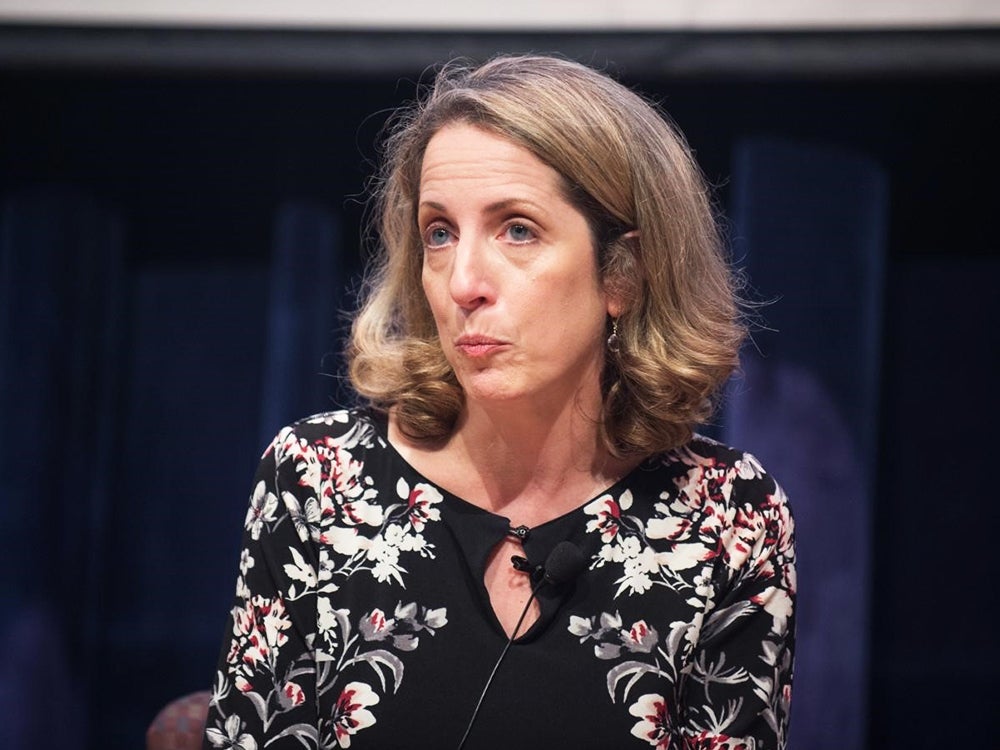
“Back in 2013 most people who came for genetic counselling and testing for hereditary breast and ovarian cancers were tested for only two genes, BRCA1 and 2. Now if you came to our clinic, we could offer you testing for over 80 genes,” Beth N. Peshkin, MS, LCGC, director of genetic counseling at Georgetown Lombardi, explained.
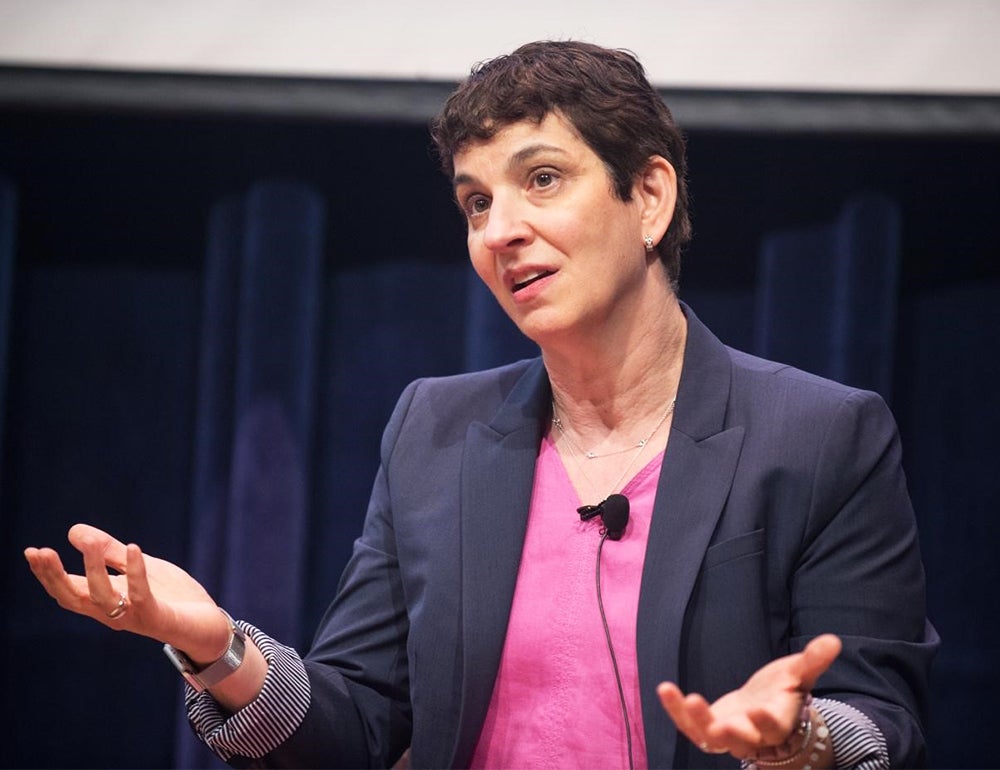
Claudine J. Isaacs, MD, medical director of the Mildred Fisher Center for Hereditary Cancer and Clinical Genomics Research at Georgetown Lombardi said, “I think the basic concept of what we are doing is trying to individualize and personalize care. And our drugs and tools to figure out who needs what drug at what point are really advancing. At the moment, some of the things that excite me the most are the increasing personalization, which means when we say the right drug, we also mean that we don’t have to give everyone that drug because we can figure out who needs it and who doesn’t and who can safely avoid the toxicities of unnecessary therapy.”
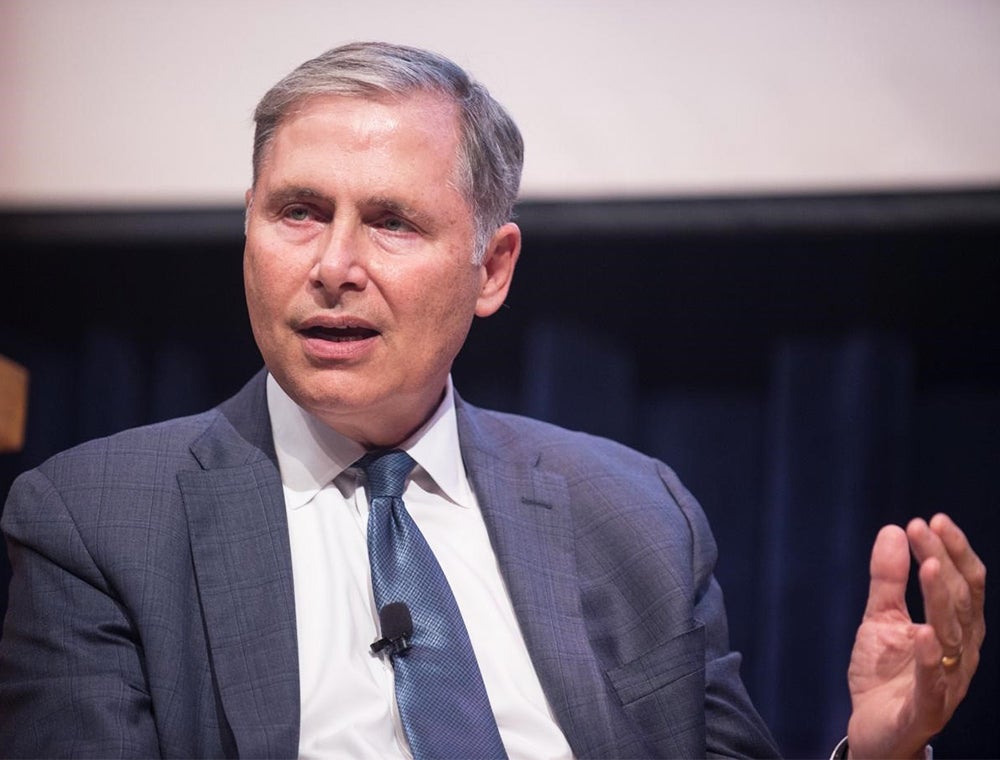
Louis M. Weiner, MD, director of Georgetown Lombardi Comprehensive Cancer Center said, “In 1971, when the national cancer act was declared, 50% of people diagnosed with cancer were cured by surgery and other means. Since then, the cure rates have risen to 70% and are still rising. This has been through a combination of things. It’s been earlier detection, but it’s also been better local treatment and the development of better drugs that kill more cancer cells through a variety of means. So it’s really been a remarkable journey. But let me be clear, research cures cancer.”
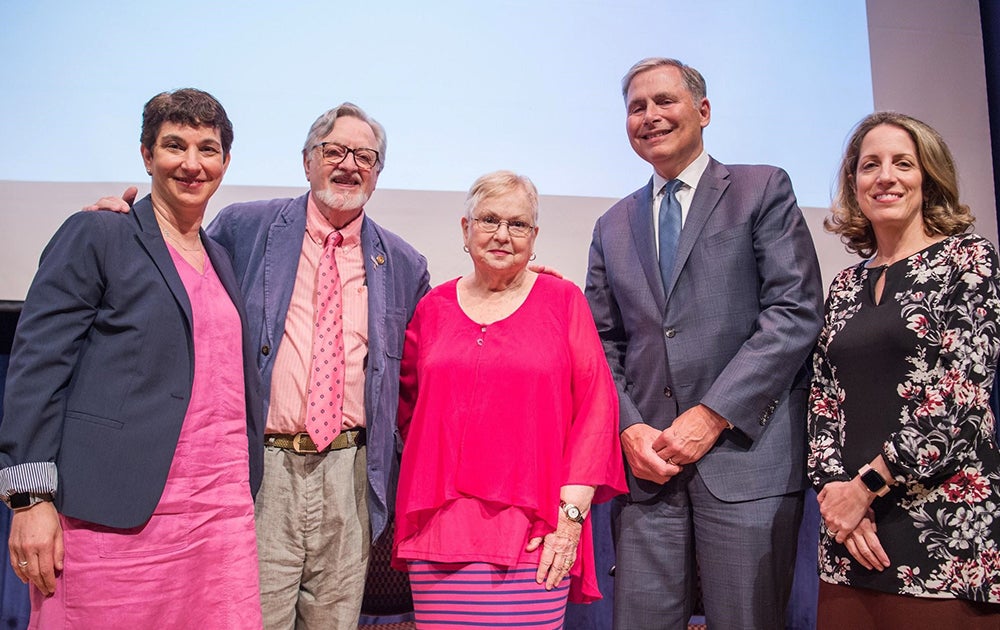
In his closing remarks, Weiner said, “The more I learn about the power of navigation, the more convinced I am that having a dynamic army of navigators who are able to help people through their cancer journey, both in the hospital and in the community, is going to be key to successful therapy.” Weiner thanked the Chieffos and said, “So what you are doing for Lombardi is truly God’s work, thank you.”
